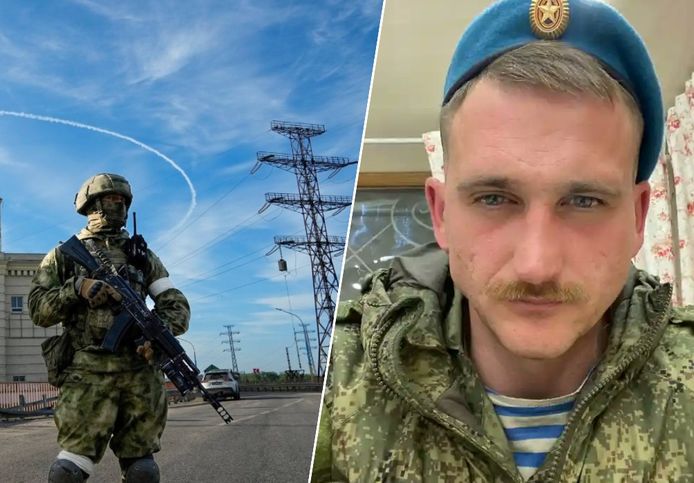In an extract from his memoirs, 34-year-old former Russian paratrooper Pavel Filatyev describes wild looting after his unit invaded the Ukrainian city of Kherson on 1 March.
Filatyev's memoir – published on his Vkontakte social media page on 1 August – is titled 'ZOV' and is based on the markings on Russian army vehicles which are used as a pro-war symbol. The translated extract in the Guardian is a detailed account of a Russian soldier's experiences in the invasion of Ukraine, followed up with an interview with the Guardian.
"Have you ever seen the paintings of the Sack of Rome by the barbarians? This is the best way to describe what was going on around me," Filatyev wrote. "It took me weeks to understand there was no war on Russian territory at all, and that we had just attacked Ukraine."
Related News
- US warned of Russian invasion for months but EU dithered
- China and Russia to conduct joint military exercises
- Finland accuses Russian warplanes of violating Finnish airspace
Filatyev served in the 56th Guards air unit based in Crimea and detailed how his badly equipped and exhausted regiment battled its way into mainland Ukraine trailing rocket fire in late February, with no concrete objective and without really understanding why the war was going on at all.
A translated Twitter thread of his experiences as a Russian soldier describes an army where even the most basic needs for food, uniforms and weapons are not met, with demotivated and exhausted soldiers lining up for hours in efficient military drills. The thread has links to the original account in Russian.
Filatyev tells the Guardian of the moral decay that made the Russian soldiers steal from and abuse Ukrainian prisoners of war. And he speaks of the shame he shared with at least 20% of his unit, although all of them cut contact with him once his memoirs became public.
"Most people in the army are unhappy about what is going on there, they are unhappy about the government and their commanders, they are unhappy with Putin and his politics, they are unhappy with the Minister of Defence, who has never served in the army," he wrote.
Russian army dissidents
In recent weeks, increasing amounts of Russian soldiers are distancing themselves from the war in Ukraine in which they themselves participated.
At least 1,793 soldiers refuse to fight, figures from the Russian news outlet Vjorstka suggest. Some quit for the same reasons as Filatyev, while for others the war has been a brutal wake-up call.
"Many of the dissidents we now see had gotten a different impression of what is happening in Ukraine from television than what faced them in reality," Aleksej Tabalov, human rights chief for the School for Conscription organisation told the investigative news site iStories, which Russia has banned from the country.
Filatyev's account stands out because he is one of the few Russian soldiers to go public. For the same reason, he has been forced to flee the country.
"Why should I have to flee my country just for telling the truth about what these bastards have turned our army into," Filatyev wrote on Telegram. "I am overwhelmed by emotions that I have had to leave my country."
Cost of the war
The Guardian has been unable to verify all Filatyev's claims although he did send them documents and photographs which showed that he was a paratrooper in the 56th airborne unit in Crimea, that he was hospitalised for an eye injury suffered while performing army duties in Ukraine, and that he had written to the Kremlin with his concerns about the war before speaking out in public.
Filatyev began detailing his experiences while on duty in Ukraine. After Kherson, his regiment was under heavy artillery fire for more than a month near Mykolaiv.
By then, he knew what he had to do. "At that point, I already thought that we were just out here doing bullsh*t, what the f*ck do we need this war for? And I really had this thought: ‘God, if I survive, then I will do everything that I can to stop this."
Two weeks ago, Fliatyev went on his VKontakte social media page and published the 141-page memoir. "I am just terrified of what happens next," he told the Guardian, thinking that Russia will fight for a complete victory regardless of the cost.
"What will we pay for that? Who will be left in our country? For myself, I said that this is a personal tragedy," he said. "Because what have we become? And how can it get any worse?"

